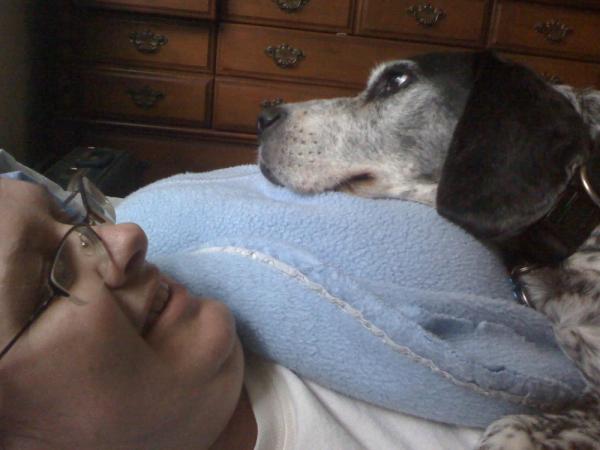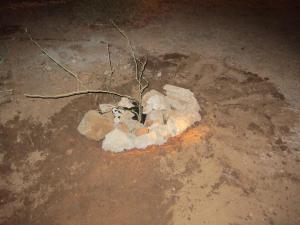Then he began to teach them that the Son of Man must undergo great suffering, and be rejected by the elders, the chief priests, and the scribes, and be killed, and after three days rise again. He said all this quite openly. And Peter took him aside and began to rebuke him. But turning and looking at his disciples, he rebuked Peter and said, ‘Get behind me, Satan! For you are setting your mind not on divine things but on human things.’
He called the crowd with his disciples, and said to them, ‘If any want to become my followers, let them deny themselves and take up their cross and follow me. For those who want to save their life will lose it, and those who lose their life for my sake, and for the sake of the gospel,* will save it. For what will it profit them to gain the whole world and forfeit their life? Indeed, what can they give in return for their life? Those who are ashamed of me and of my words* in this adulterous and sinful generation, of them the Son of Man will also be ashamed when he comes in the glory of his Father with the holy angels.’~Mark 8:31-38 NRSV
Many times in Christian tradition we hear Jesus referred to as the “Great Physician”. In this week’s lectionary I think we see Jesus the Great Physician, in rare and honest form. Jesus is giving his disciples a very clear prognosis. Peter, like so many of us, responds with denial –the first stage of grieving. Peter is so like us.
I remember sometime in late 2002, I sat in a orthopedist’s office. He spoke to me about the MRI of my spine. He used words I did not, yet, know. What I most remember is “by age 40 you’ll be using a wheelchair or in need of spinal surgery.” NOOOOO! My brain, like Peter’s could not process it. I could not conceive of what he said. My mind shot out firecrackers of um so I worked my way through years of painful, confidence shattering physical and speech therapy to cope with Cerebral palsy, and now you are telling me that I am going to need to use a wheelchair anyways? Then what has been the point of all the work everyone told me was necessary and good? What then has been the point of my life if not to exceed expectations? If I can no longer do that who am I? His words could not possibly fit into what I knew of life.
Peter rebuked Jesus not out of stupidity, although the writer of Mark sometimes portrays the disciples that way. Peter’s reaction to the news that Jesus would die was not really inspired by Satan, but by the very human experience of not being able to connect new information to what was expected based on a very real and human understanding of the world. Peter could no more conceive of the Messiah dying on a cross, then some people can conceive of a woman who used to have a speech impediment preaching. Peter is not very different from the families I meet who can not believe that their loved one on hospice is actually dying.
We live in a society that teaches us that physical change and decline is unacceptable, that it needs to stay hidden or be “put away” somewhere. But that is not how real life is. We are born, we age, we decline, and we die. Jesus is stating a very matter-of-fact truth about human life. Still like Peter we resist it. We resist change. We don’t want to believe that the real plan might be different from our plan. The influence of the Greek cynics is strong, we hear it from the men who die along side Jesus “Physician, heal thy self” / “Save yourself if you can”. That is what Peter expects–triumph against the world and the expectations of history.
Jesus, however, invites us forward into the very history we resist. Jesus calls us to the new. When my chronic pain started in 2002, I hated it. I wanted to go back the time when life itself was not a struggle. I took me a while to learn that was not going to be an option. Life became the unexpected. Somewhere somehow I realized that the pain might change my life but would not end it. I lost the competitive swimming, lost some ability to do the physically taxing book art that I loved, and lost some of the activeness I was known for. It seemed like I lost me. In time I realized that was all wrong. My acquired disabilities invited me out of the shadows. I could not hide my chronic pain as I had learned to compensate for and hide my cerebral palsy. A nun who had spent most of her career working with people with developmental disabilities, and was my supervisor, thought it was great fun to fold her arms over her chest and point out to me my very CP personality traits. Then there were the old ladies who sat behind me at church, who saw how much it hurt for me to stand or hold the hymnal in worship. They forced me to try a cane. I did not like any of it, but recognizing my real needs helped. It was when I could accept my acquired disabilities that I stopped denying my native disabilities. I learned to accept myself. It has made all the difference. To come out as who I am as a disabled woman has also allowed me to become an advocate, to make the world a more welcoming, accepting, inclusive world. That is not the work of Satan, it’s the work of accepting reality and following Jesus wherever he has us go.

